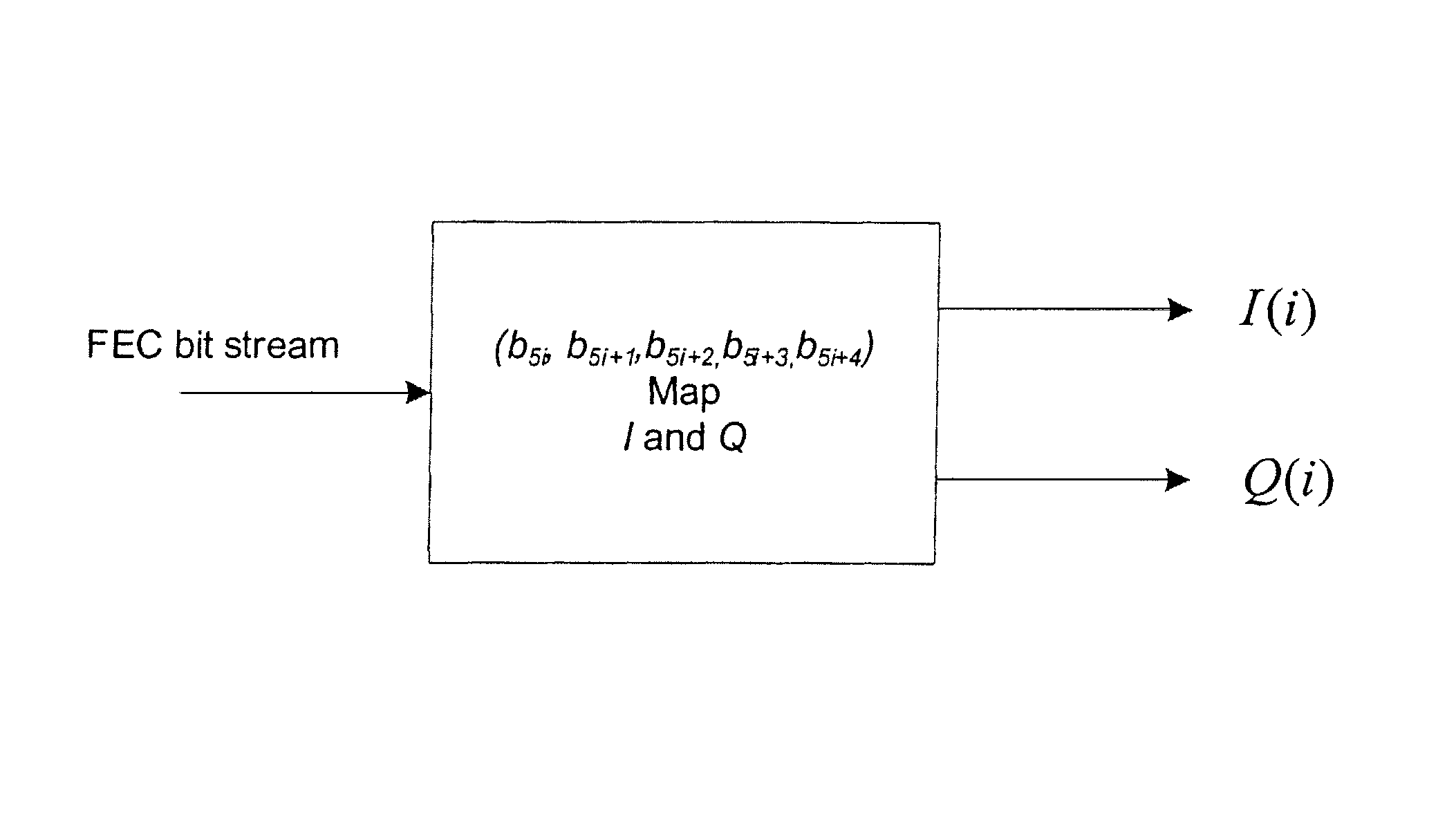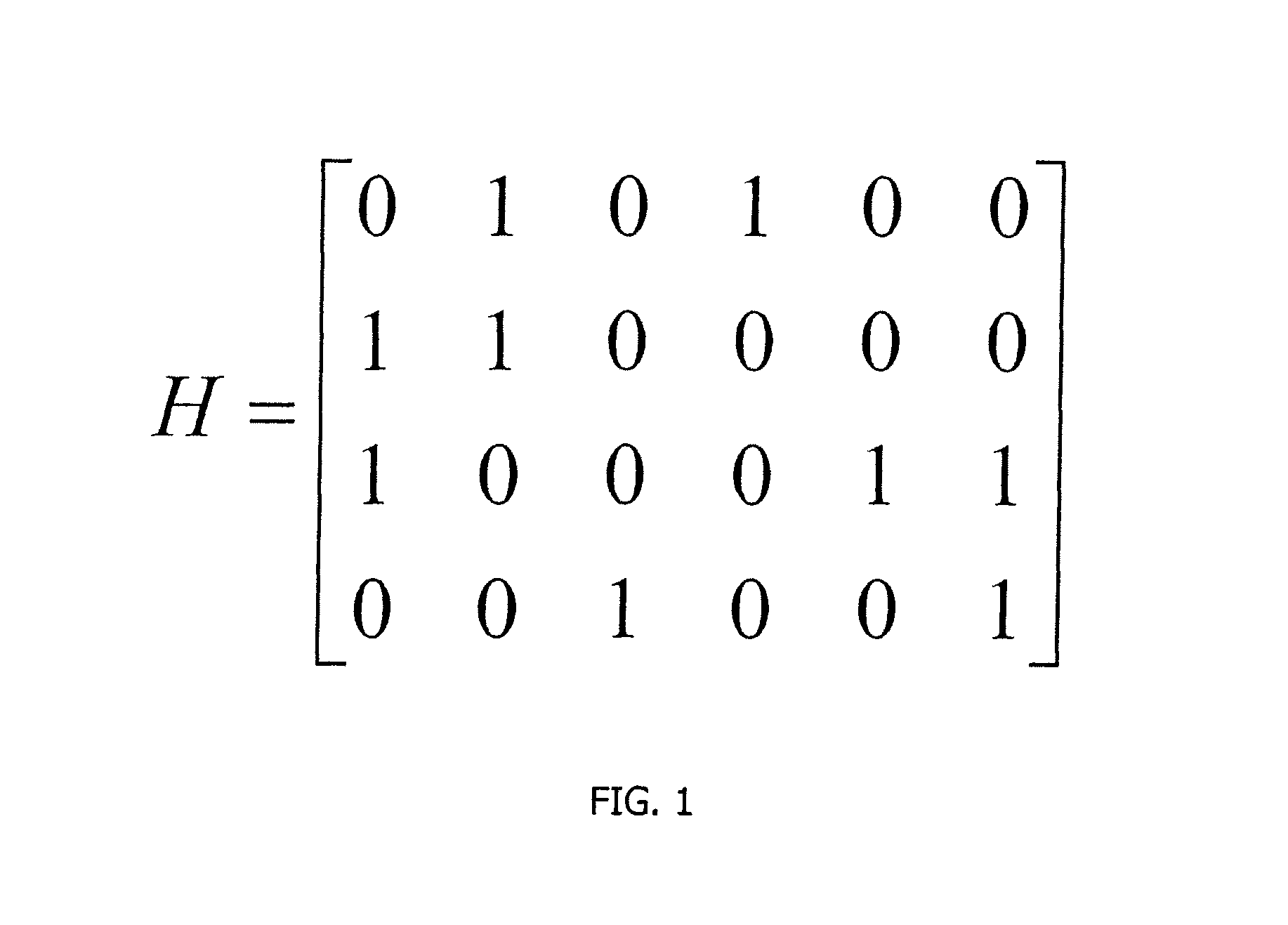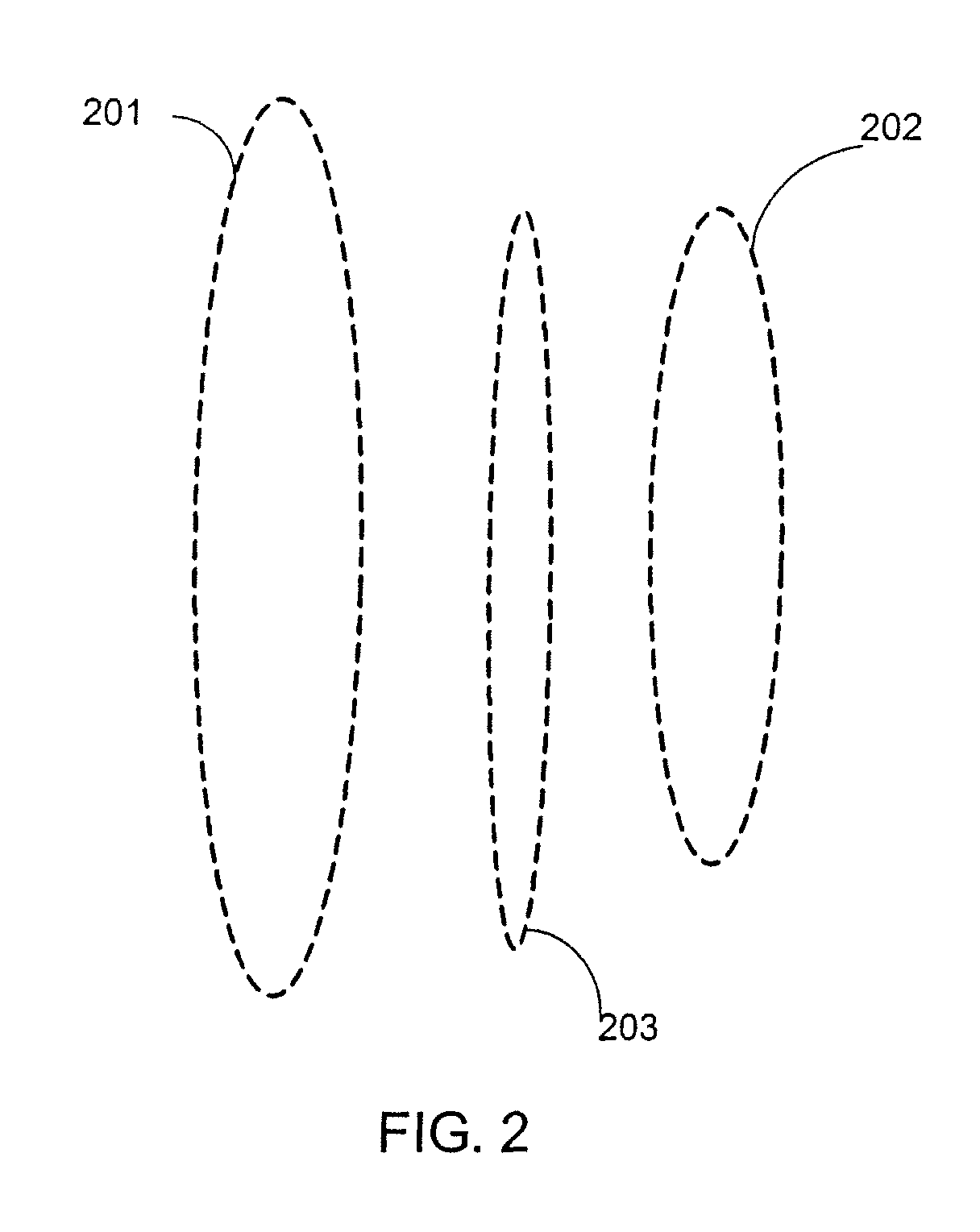Interleaving scheme for an LDPC coded 32 APSK system
a modulation system technology, applied in the field of interleaving low density parity check (“ ldpc”) encoded bits in 32apsk modulation systems, can solve the problems of reducing the error probability of input signal quality increase, often encountering error floor, etc., and achieving good thresholds and reducing transmission power
- Summary
- Abstract
- Description
- Claims
- Application Information
AI Technical Summary
Benefits of technology
Problems solved by technology
Method used
Image
Examples
Embodiment Construction
[0031]Referring to the accompanying drawings, a detailed description will be given of encoded bit mapping methods using LDPC codes and program for executing this method according to embodiments of the invention.
[0032]Although the present invention is described with respect to LDPC codes, it is recognized that the bit labeling approach can be utilized with other codes. Further, this approach can be implemented with uncoded systems.
[0033]FIG. 4 is a diagram of a communications system employing LDPC codes with an interleaver, according to an embodiment of the present invention. A communications system includes a transmitter 401 which generates signal waveforms across a communication channel 402 to a receiver 403. The transmitter 401 includes a message source producing a discrete set of possible messages. Each of these messages corresponds to a signal waveform. The waveforms enter the channel 402 and are corrupted by noise. LDPC codes are employed to reduce the disturbances introduced b...
PUM
 Login to View More
Login to View More Abstract
Description
Claims
Application Information
 Login to View More
Login to View More - R&D
- Intellectual Property
- Life Sciences
- Materials
- Tech Scout
- Unparalleled Data Quality
- Higher Quality Content
- 60% Fewer Hallucinations
Browse by: Latest US Patents, China's latest patents, Technical Efficacy Thesaurus, Application Domain, Technology Topic, Popular Technical Reports.
© 2025 PatSnap. All rights reserved.Legal|Privacy policy|Modern Slavery Act Transparency Statement|Sitemap|About US| Contact US: help@patsnap.com



